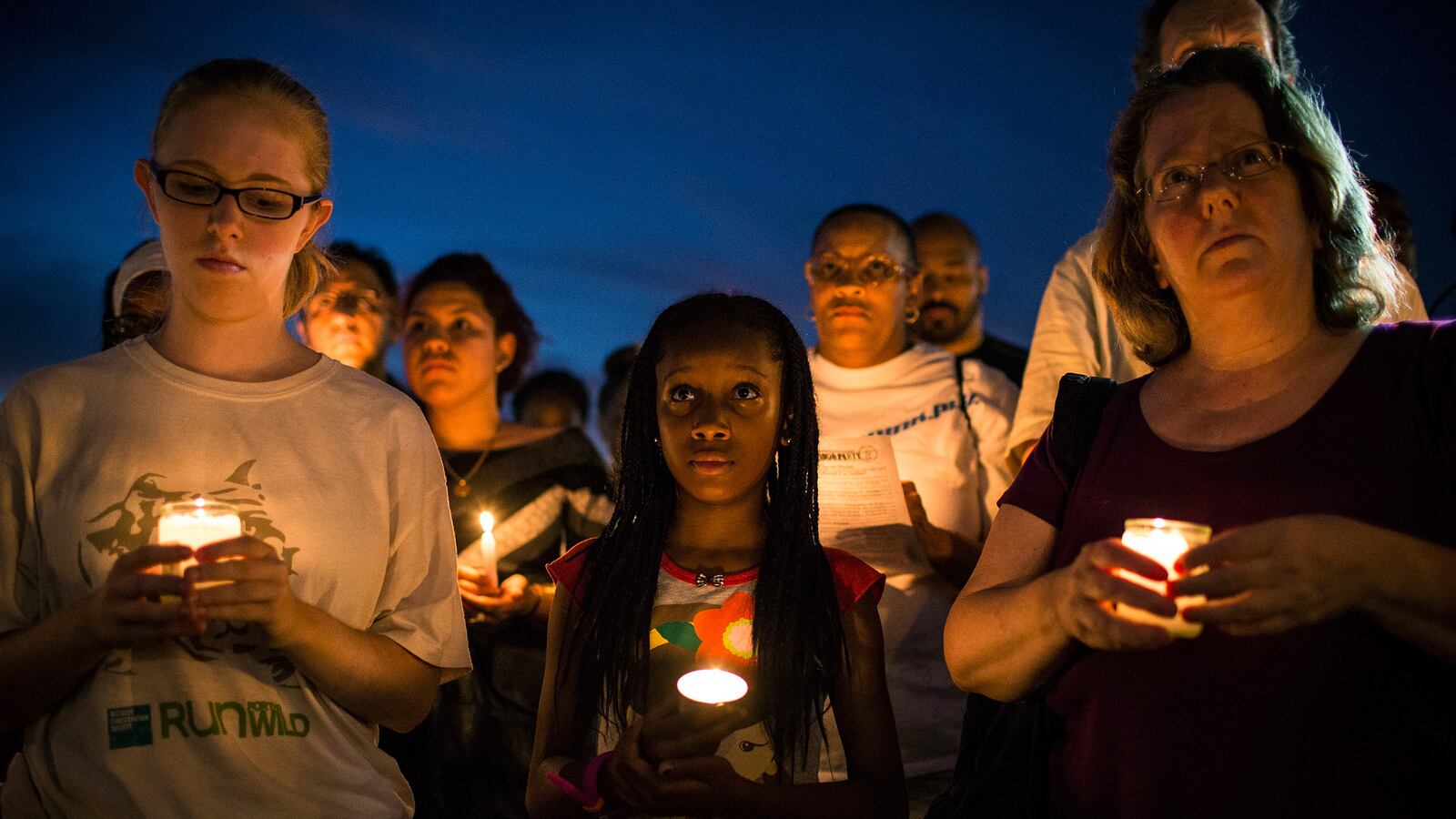I remember when I was 17 years old, in 1969; three of my friends dropped by in one of their cars and asked me if I wanted to go out with them to the beach or the woods, I forget which. I told my father that I was going and he came out to see my friends. He knew them all and liked them. I went to high school with two of them.

“I’ll see you later,” I said to my dad.
“OK, Walter, but let me tell you something first. If the police stop you guys, your friends will be going home and you will go to jail.”
These particular friends were young, long-haired white kids.
My father was telling me, teaching me that my rights and those of my friends were not the same in midcentury America. People were watching me, suspecting me, fearing and hating me. Not all people. Not all white people. But there was an active shooting range on the streets of every big city in the country, and there was an indelible target on every black man’s chest and head.
Living in the land of the free doesn’t make you free—that’s what my father taught me.
This lesson was repeated every day for many and most young black men in America. The older generation, through gritted teeth, was passing on despicable wisdom that had been true since the United States had been colonies.
This was the kind of wisdom that everyone wanted to forget. We wanted to wake up in a country where laws were equally meted out according to who you were as a person and what you had done as a citizen of this nation.
My father was telling me that I did not have the same rights as other young men had; that I shouldn’t expect equal consideration and it was more likely that I would be beaten, chained, or killed for being in places where others could pass with impunity.
I went with my friends. Nothing happened. Nothing except that somewhere in my targeted heart there was a fear and a shadow of doubt. I was on the defensive.
The recent decision in Florida brings back the old days for those who remember. It sends out a message to every young black man, and those who love him, that his rights and his hopes and his freedom to express his opinion are all in the garbage. Don’t talk too loud. Don’t ever run on a public street because if they see you running they will know you did something wrong. Don’t argue with, refuse, or deny any accusation or claim against you unless, like the founding fathers, you are willing to die for your beliefs.

Don’t expect justice on the street or in the courts. And, most importantly, don’t expect anyone who has not experienced this abrogation of human rights to understand what you feel.
Where I live now, in New York City, young men of color can expect to be stopped and frisked for being young men of color. Wall Street executives don’t have to worry about it. As a matter of fact, most white New Yorkers never have to worry about being pushed up against a wall or car and have some stranger go through his pockets and to pat down his privates. Young black men don’t even have the right to be angry, outraged, or belligerent. They must expect and accept prejudice and profiling.
What would a Mad Man think if he was picked out of a crowd and searched because someone thought that he looked shifty? What would a soccer mom think if her unarmed son was killed for walking down the street? What would either of these individuals say if, when they complained, they were told that such manifestations of indignity and death were completely legal and they had no recourse under the law?
This last question is for all Americans. Because when you push a man up against a wall and say that the only way out is in a coffin, then you’re not only removing his rights, you are also throwing down a gauntlet.
Our forefathers, brave men all, fought and died and killed for the rights we have as Americans today. The armies on their lands were the enemy’s armies. The courts they were hauled into represented enemy justice.
Many young Americans are in the same predicament. Are we going to stand at their side, shoulder to shoulder, to protect all of our rights? Or are we going to allow a false sense of security to rob us of the rights handed down by the American Revolution?






